7 Email Phrases That Sound Polite But Hurt Your Chances For A Promotion, According To A CEO
They may make you sound respectful, but they also make you sound passive.
 F8 studio | Shutterstock
F8 studio | Shutterstock For many of us, email is the bane of our work existence. One of the many things that makes it so annoying is the need to constantly overcorrect for an email's lack of tonal clarity. You feel like you have to shoehorn in all these niceties to come across as polite and unthreatening. It's exhausting! But according to a CEO, it's also hurting your chances at advancement.
A CEO shared 7 common email phrases that sound polite but hurt your chances for a promotion.
We've all been in these situations where the meaning of an email has been misconstrued in a way that would never happen if it had just been spoken aloud in normal conversation.
On top of that, women, people of color, queer people, anyone outside the established "norm" often feel like they have to be even more careful to not sound threatening or demanding because of the ways biases and power structures in the workplace impact them. From "code-switching" to adding in lots of exclamation points and niceties, undercutting yourself in emails has long been a common practice.
But David Garcia, CEO of ScoutLogic, a provider of background-check services for HR and recruiting teams, says that many of these phrases can have the opposite effect than we intend by making us seem overly passive and even unconfident. Over the long term, this can impact our chances of being considered for things like promotions.
“Using language to command attention and leave a lasting impact is a powerful skill to hone,” Garcia explained. He urged workers to "recognize and reframe any phrases that may be working against you and damaging your professional relationships in the long run." Here are seven of those phrases and how to retool them to work to your advantage.
1. 'I’m just writing to…'
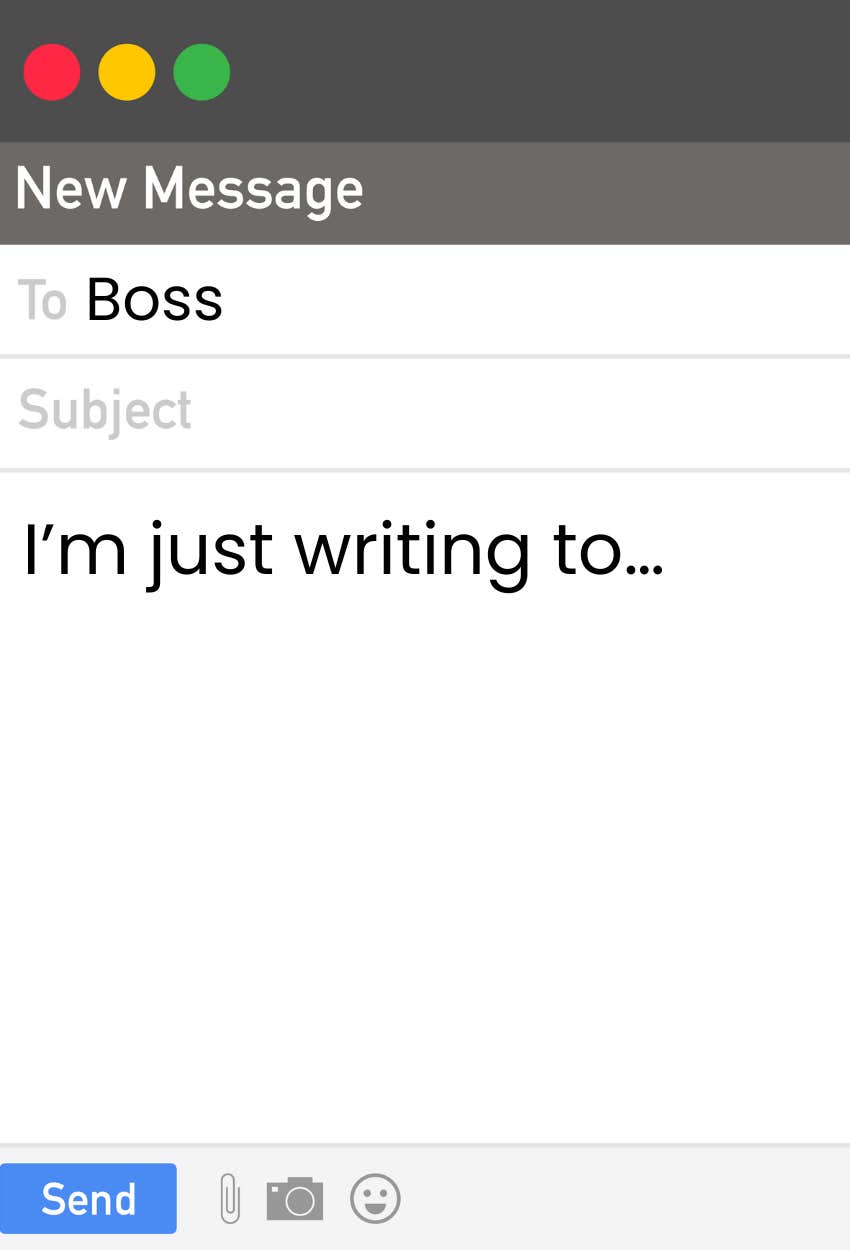 Design: YourTango
Design: YourTango
Garcia said that including the word "just" in this phrase implies that your message is an interruption, which not only undermines you but may even conjure that perception in the recipient where it wouldn't otherwise be there.
"When we phrase things too tentatively, we make our message seem less urgent or important,” Garcia said. He recommended simply using "I’m reaching out to…” or "I want to update you on…" instead.
2. 'Sorry for bothering you…'
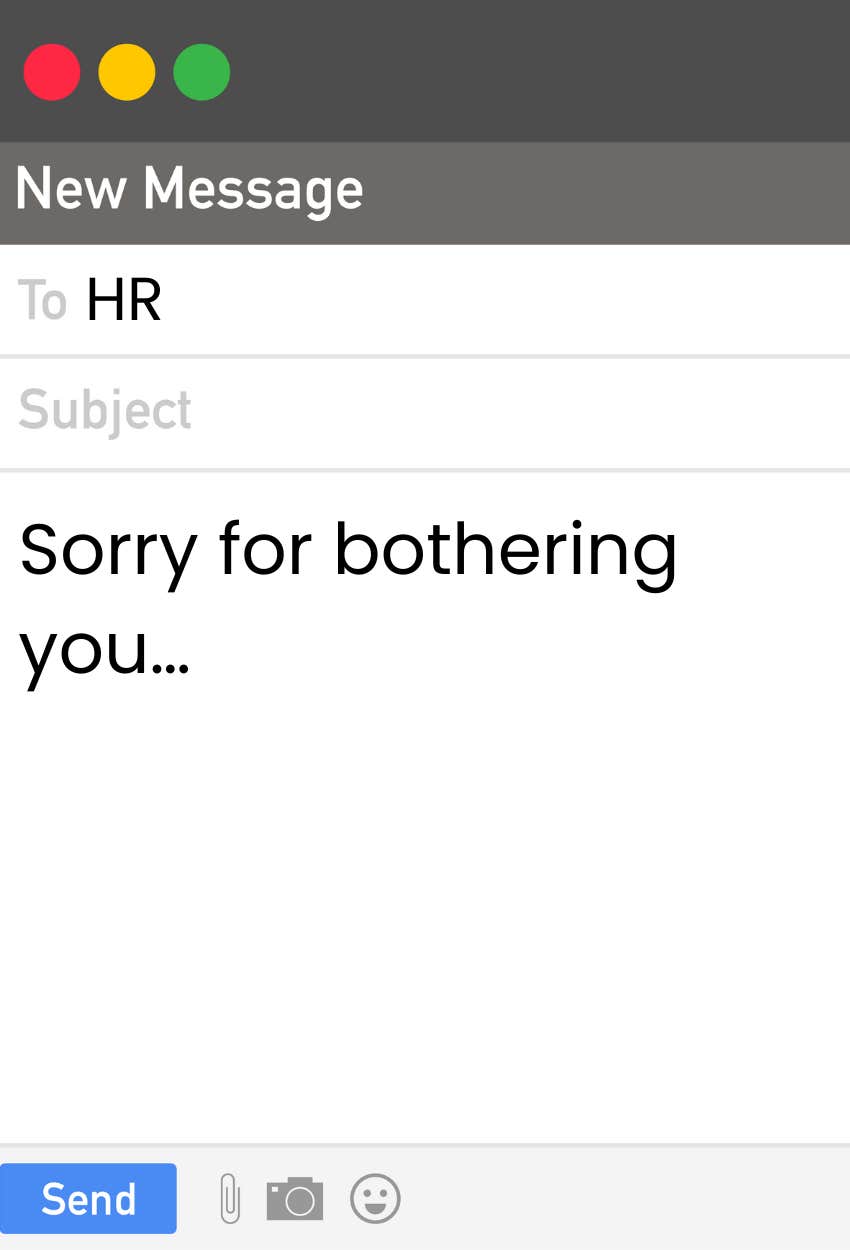 Design: YourTango
Design: YourTango
Once again, this undermines your authority and value by not only subtly implying that you're a nuisance, but that what you have to say isn't worth the reader's attention.
Garcia suggested using phrases like "I appreciate your time…" or "I know you're busy, so I'll be brief" to show similar respect for your colleagues' and superiors' busy schedules without downplaying your own value.
3. 'I think we should…'
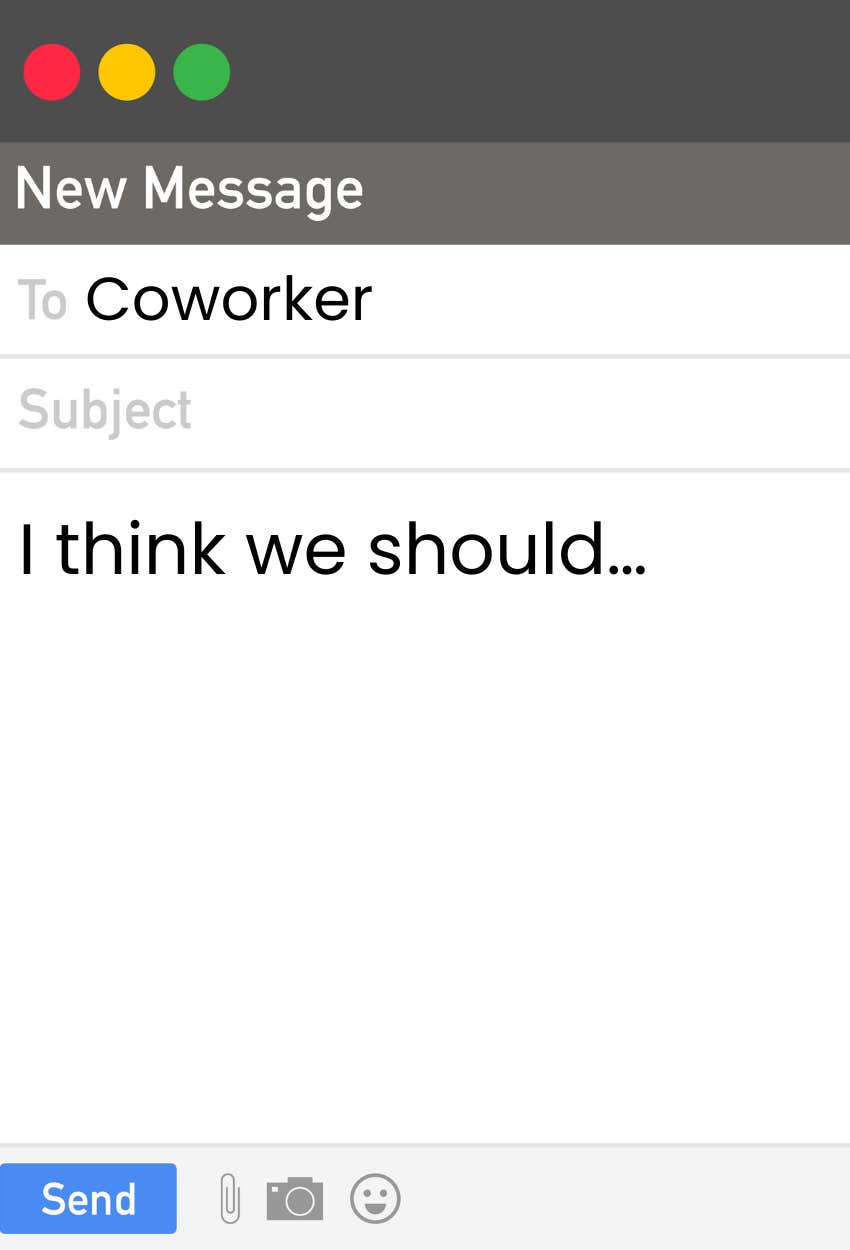 Design: YourTango
Design: YourTango
Garcia urged workers to remove the "I think" part of this phrase, because it "casts doubt on your own suggestion." Especially when it comes to long-term career goals like promotions, you want your colleagues and managers to think you're someone with vision and confidence who knows their stuff.
Simply saying "we should" or "I recommend" instead conveys that you have ideas that you know hold value, and you're self-assured enough to put them out there.
4. 'Would it be possible to…?'
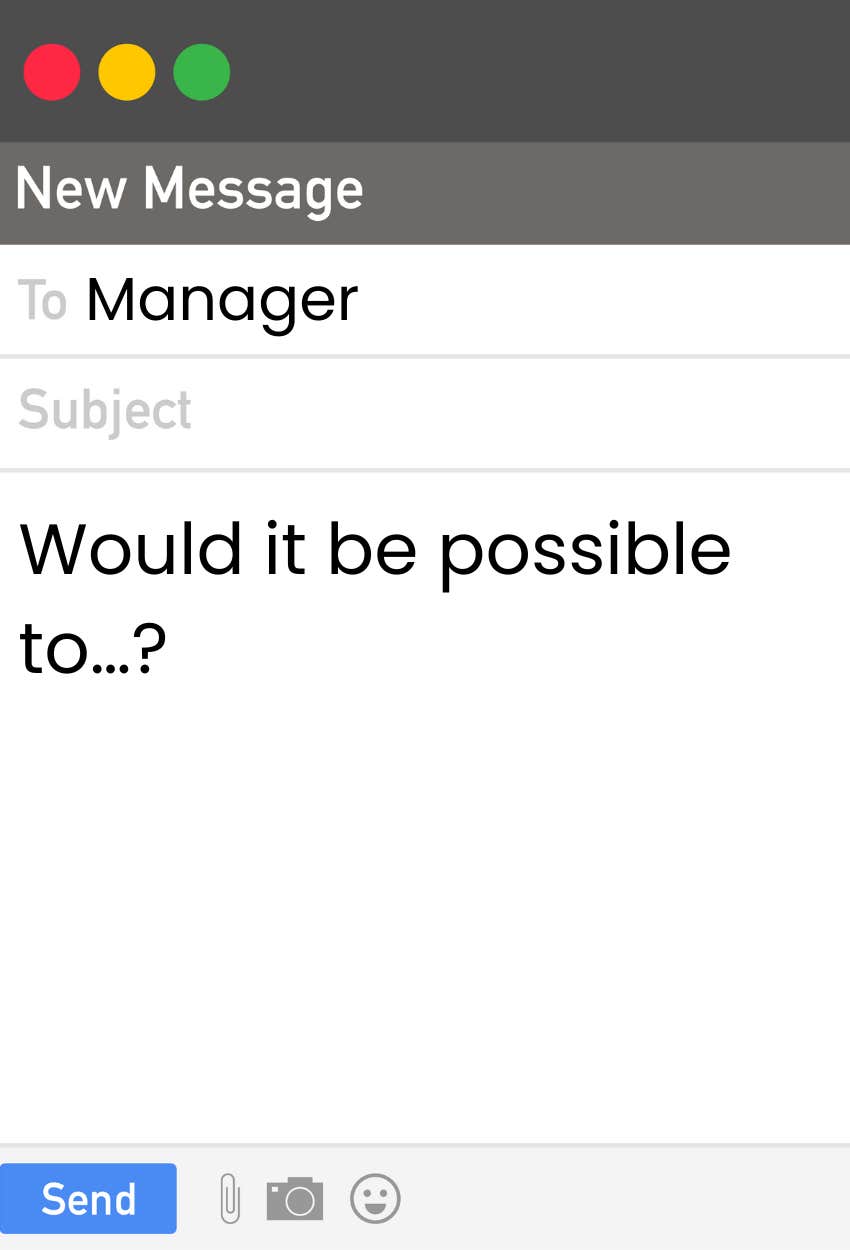 Design: YourTango
Design: YourTango
This phrase comes across as tentative, as if you're afraid of blowback or worried that making a request will seem presumptuous or demanding. But as Garcia put it, "clarity and directness don’t equal rudeness, they show leadership."
Use phrases like "please let me know if you can…" or simply "can you…" because Garcia said "niceties [like these] may end up frustrating people." Getting to the point, on the other hand, "builds trust. People know they can rely on you to be respectful of their time and offer something worthy of their attention."
5. 'I just wanted to follow up on…'
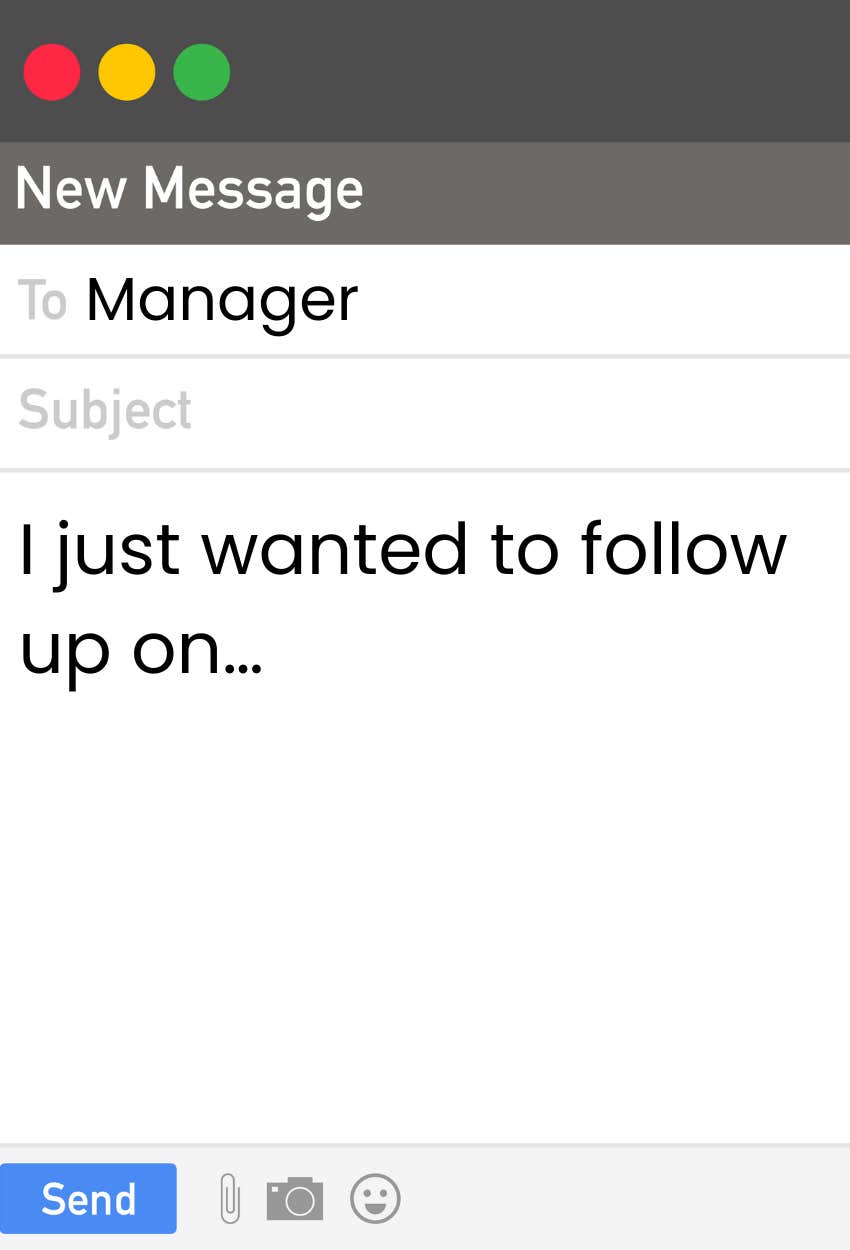 Design: YourTango
Design: YourTango
This phrase makes you sound hesitant and like you're not only asking permission for information you need to do your job, but apologizing for doing so at the same time! Again, it shows a lack of confidence rather than a focus on getting the job done. Just say, "I'm following up on" and leave it at that.
6. 'If you have any questions, please feel free to ask.'
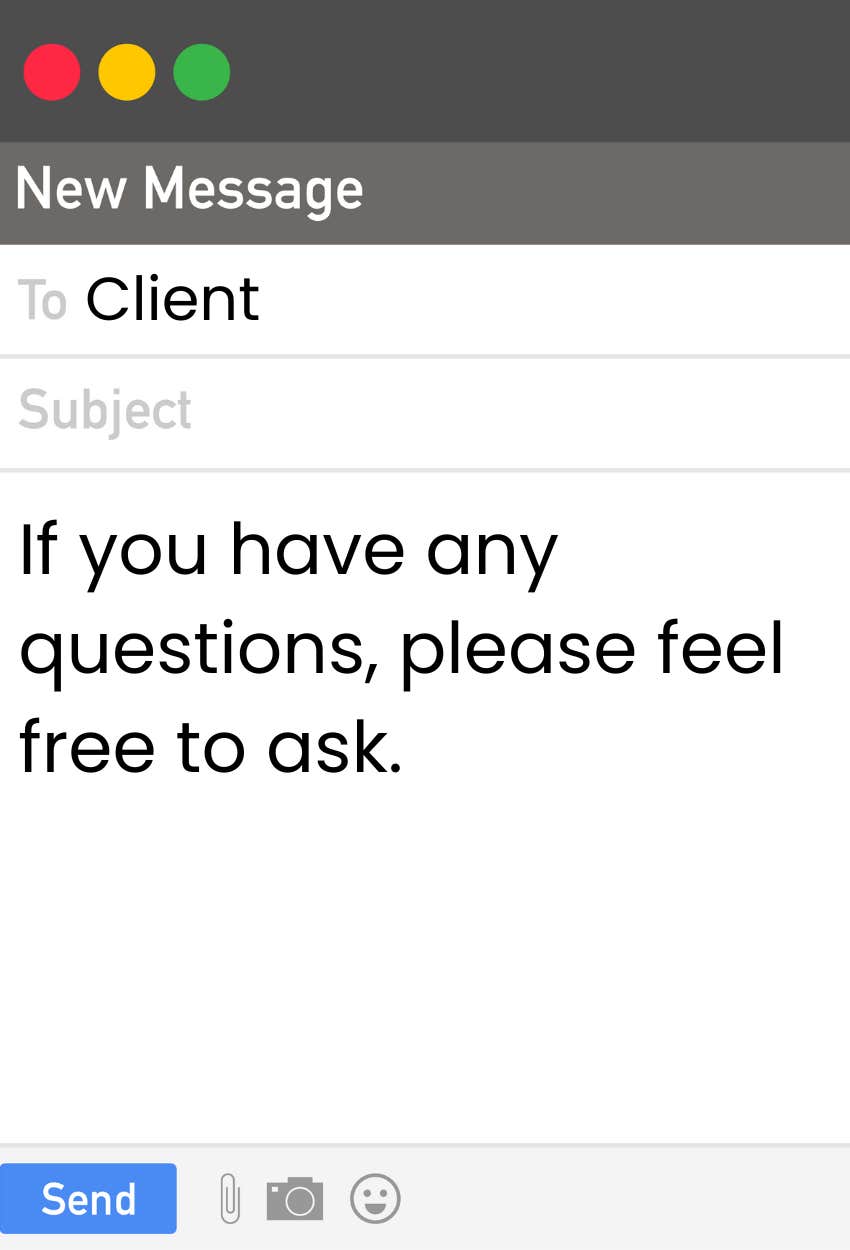 Design: YourTango
Design: YourTango
The distinction with this phrase is perhaps the most subtle on the list, but Garcia said it makes a huge difference. "'Please feel free sounds overly accommodating," Garcia said, and like you have all the time in the world to field people's inquiries.
A direct approach like "let me know if you have any questions," on the other hand, keeps it simple and direct, which makes you sound more authoritative and like leadership material.
7. 'Hopefully, this makes sense.'
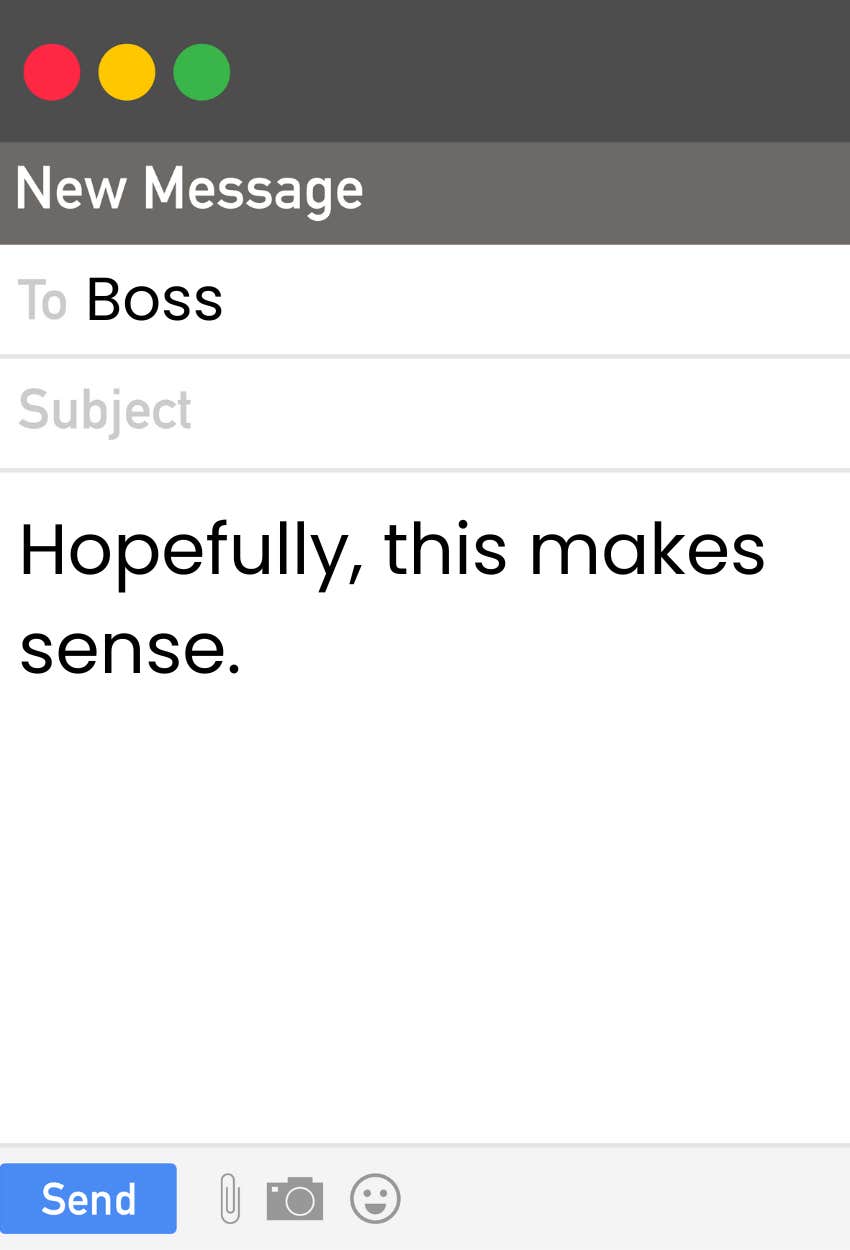 Design: YourTango
Design: YourTango
Once again, you're undermining yourself, your ideas, and your authority. "Hopefully," Garcia said, "suggests uncertainty" in your own statements. That has a huge impact on how people view you.
"Over-apologizing or under-asserting yourself can unintentionally send a message of insecurity, which determines how seriously people take you," Garcia said. Simply telling your colleagues, "let me know if you need clarification," opens the door to further discussion without pre-emptively suggesting your own incompetence.
As Garcia put it, "you’re not just making your message clearer, you're signaling that you know your stuff and you mean business." That's a skill that will serve you throughout your career and help carry you to the next level.
John Sundholm is a writer, editor, and video personality with 20 years of experience in media and entertainment. He covers culture, mental health, and human interest topics.

